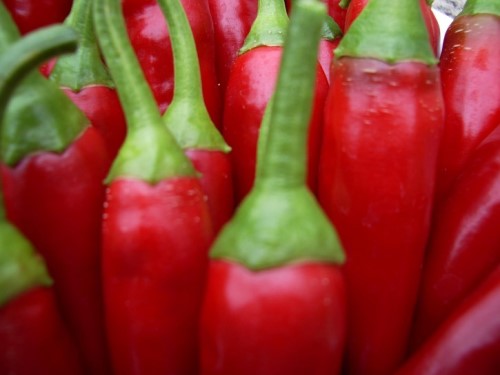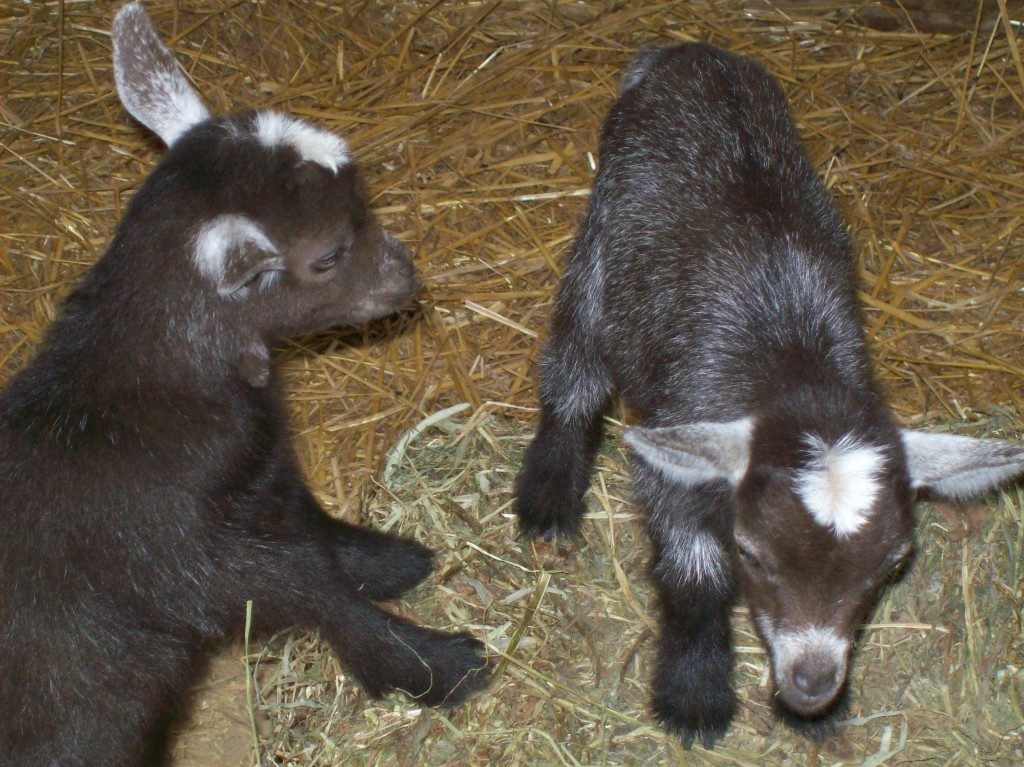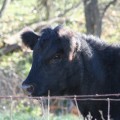
The local food movement folks often think they have a very different philosophy from the compassionate vegan folks. The reality is that our intentions are very much the same. We want to do the right thing.
The problem is that everyone I know who claims to just eat locally, doesn’t. They often buy non-local products and eat out at restaurants that use non-local ingredients. I have also found that most of the people who are trying so hard to eat locally, haven’t done their homework about the real affects of their choices.
When judging the carbon footprint of a particular food, it is important to take into account the water and energy required to produce the product, not just the transportation of the item. It turns out that transportation is a very small part of the ecological impact of our food. A study in the Journal of Environmental Science and Technology found that switching just two meals a week from meat and dairy products to vegan choices reduces more greenhouse gasses than buying all local food.
The local food trend is very popular in the USA. As a part of this local food movement, many people are buying chickens and goats and plopping them in their backyards to produce their own meat, eggs and dairy. Most of the people doing this do not have a clue how to really meet all the needs of the animals they are raising. Craigslist here is full of listings from people who did not know what they were getting into and now have animals they will give away free to anyone.
I recently led a compassionate living program at a week-long camp for teens. I arrived at the camp just as the program before mine was in full swing. A local woman who has goats in her yard was letting the campers milk her four goats. I sat in on the session. Many of the campers would not taste the milk because they saw the source and it grossed them out. I asked them if they would drink it if it was in the store in a plastic jug. They all said they probably would. The goat woman was talking about her spiritual connection with the goats. I asked her if she keeps the goats pregnant so they will keep producing milk. I wanted the campers to have the full story of the reality of dairy. When she shared that she does keep them pregnant, I asked her what happens if a male kid is born? She said, “We send them off. We cannot keep them around because they have a strong smell and it affects the milk.” I wanted the campers to understand that the male goats don’t just go to boarding school when they are sent off, so I kept inquiring. When I asked the goat woman where she sends them off to, she slid away from the question. The director of the camp was also in the session. He said, “Well, it is all part of the cycle of life, isn’t it? They are learning about the cycle of life..” “Yes,” I replied, “they are learning about the cycle of life and the cycle of unnecessary premature death.”
Two of the lucky baby goats seen here at Sasha Farm Sanctuary (Photo: Rae Sikora)
Possibly the best part of the local food movement is that people have a bit more of a connection to where their food comes from. The worst part is that, when animals are involved, the glossy wholesome image that goes along with it covers up what it really means for the individual animals and the environment. Mothers and babies torn apart so we can steal their milk, males sent to slaughter and mothers who are no longer producing large quantities of milk also sent to slaughter, buying baby chicks shipped from hatcheries who kill off the males in often barbaric ways, chickens kept in small boxes in backyards (common in our community), non-local feed often fed to the animals on farms marketing products as “local”, trucking and non-local slaughter of many of the animals whose flesh is sold as “local”, and the use of large quantities of water for each animal (in many areas, water is a very scarce commodity).
I know that death is part of life. I also know that we can make choices that support our own health, the environment and all beings and thrive on compassionate vegan choices. We cannot live a life that does no harm, but we can make choices that cause the least harm.
I am all for eating locally and growing our own food whenever possible. Imagine the double positive of choosing local and plant-based foods! So, when you are looking at what to do with that backyard of yours, plant fruits and veggies. Health, compassion and environmental responsibility can all be part of your local food plan!







3 Comments
Chia (324 comments)
April 27, 2012 at 10:27 amThanks for sharing. A great article with many good points to consider.
happycowgirl (37 comments)
April 27, 2012 at 9:53 pmTop notch article. Very well written.
Rae, I share your thoughts and had a similar experience at a “Farm to Fork” restaurant in my town. The waiter was talking about how wonderful it is to keep everything local. I totally agree with the concept. We were seeing eye-to-eye with me telling him about the local organic vegetable farmers I know of. Not knowing yet I was vegan, he told me how cool is was that the chicken they serve was slaughtered just the day or two before. Then he told me about how their chickens come from the neighboring county. I asked where they were from. He said he could not tell me. What? I thought that was weird. Why? I asked. The answer is as you would suspect. They did not want anyone to know the location of the slaughterhouse. I guess farm-to-fork does not come with humane slaughter conditions. So much for feeling good about your food.
VeganSally (6 comments)
April 27, 2012 at 10:03 pmThe goat woman has a spiritual connection with the goats? What’s her spiritual connection with the baby boy goat who is shipped off to slaughter b/c it was born the wrong gender?